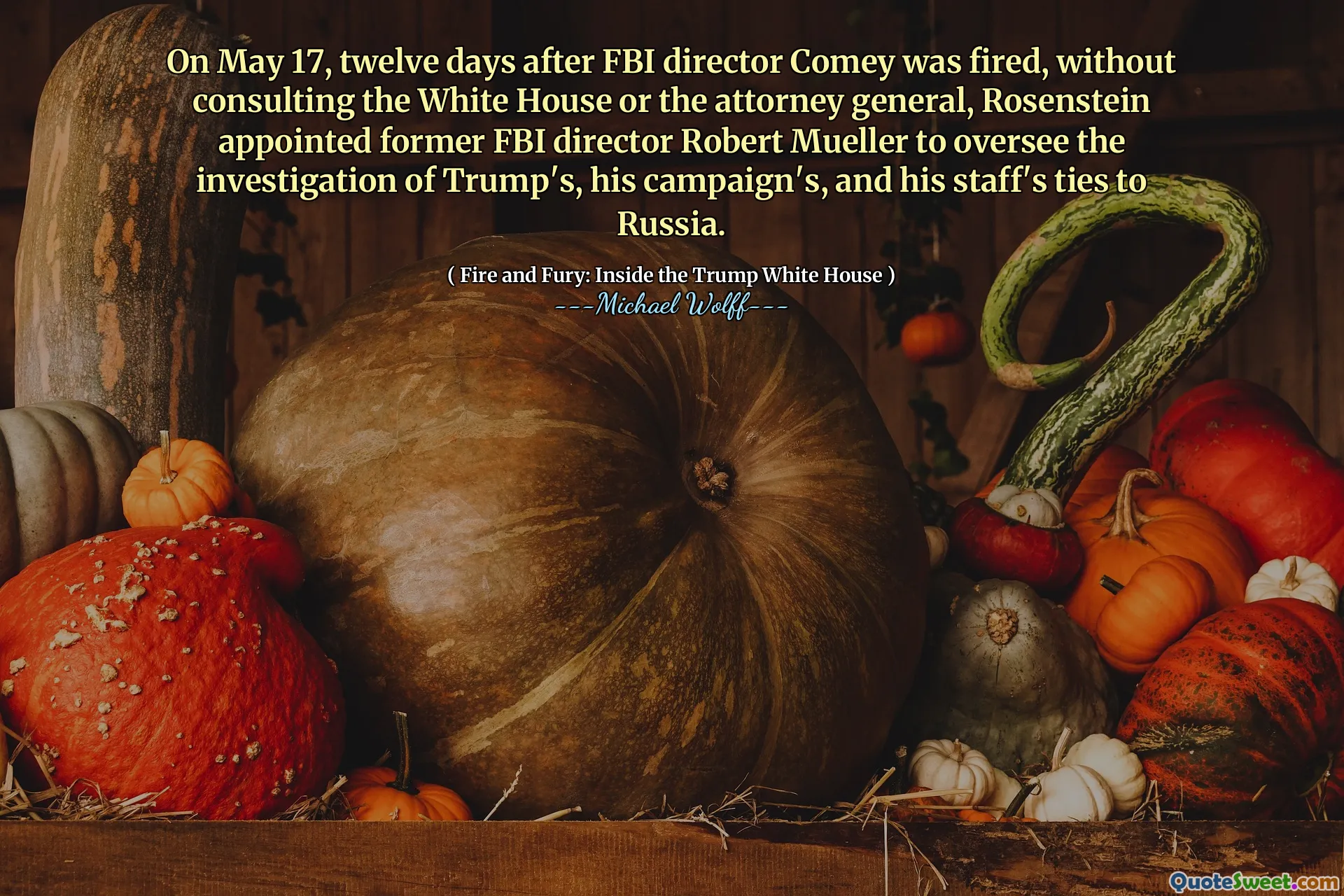
On May 17, twelve days after FBI director Comey was fired, without consulting the White House or the attorney general, Rosenstein appointed former FBI director Robert Mueller to oversee the investigation of Trump's, his campaign's, and his staff's ties to Russia.
On May 17, just over a week after the dismissal of FBI Director James Comey, Deputy Attorney General Rod Rosenstein took decisive action by appointing former FBI Director Robert Mueller. This appointment came as a significant move, as it was done without prior consultation with the White House or the Attorney General, indicating the seriousness of the situation regarding potential ties between President Trump's campaign and Russia.
This investigation became a pivotal moment in the Trump administration, highlighting concerns about election interference and foreign influence. Mueller's role was to ensure an independent inquiry into the allegations against Trump and his associates, placing a heavy emphasis on the integrity of the electoral process and its safeguarding from external threats.











